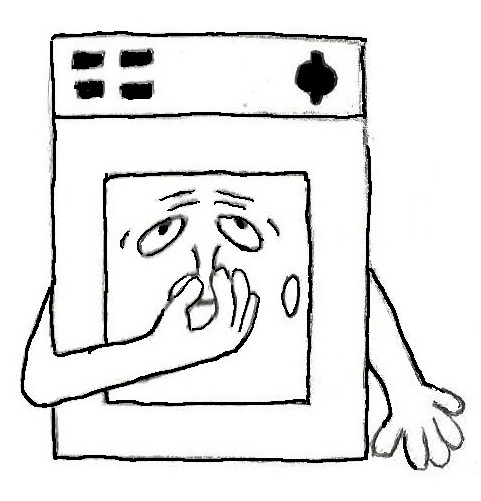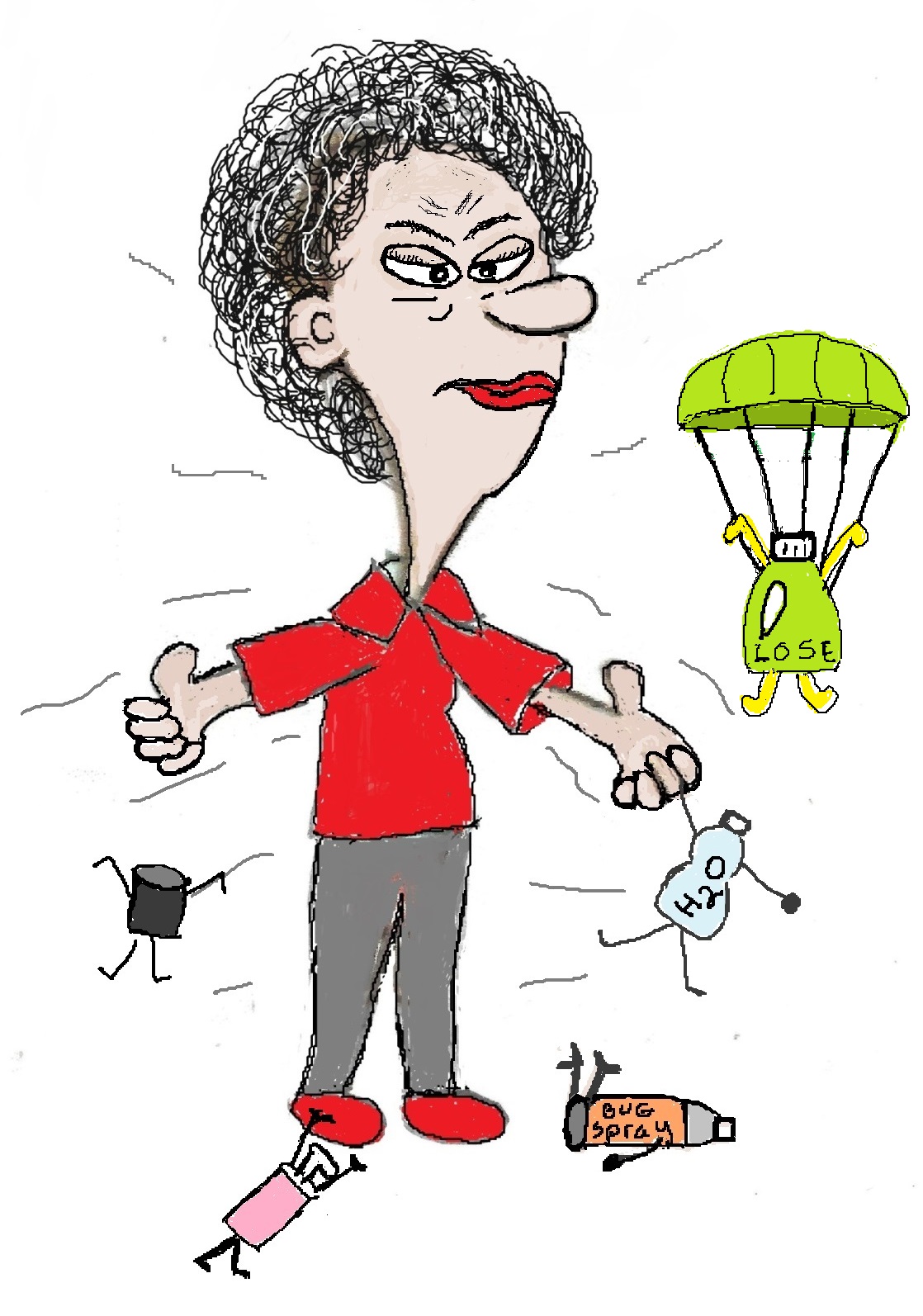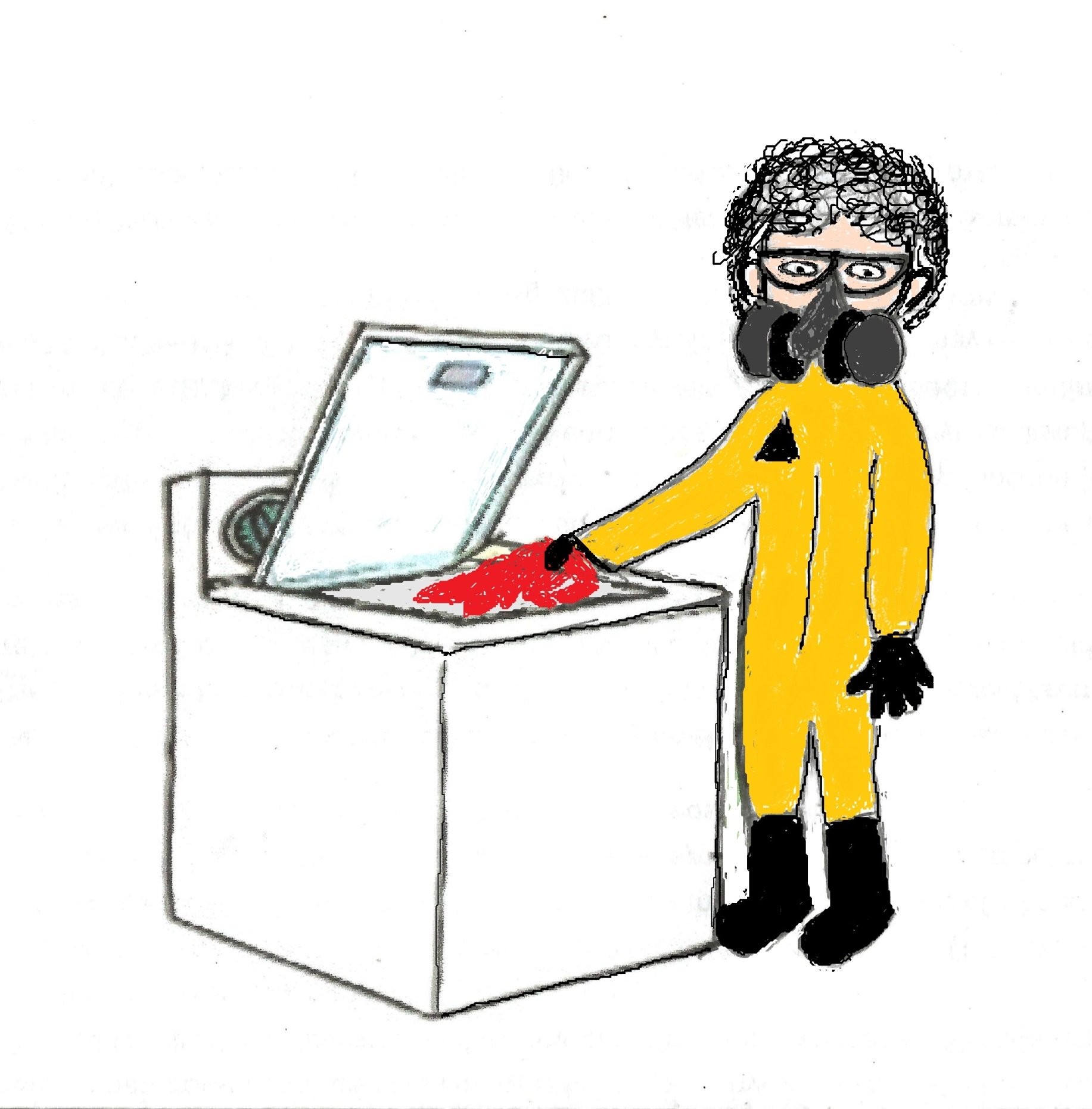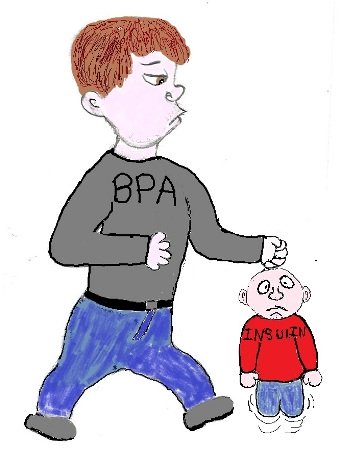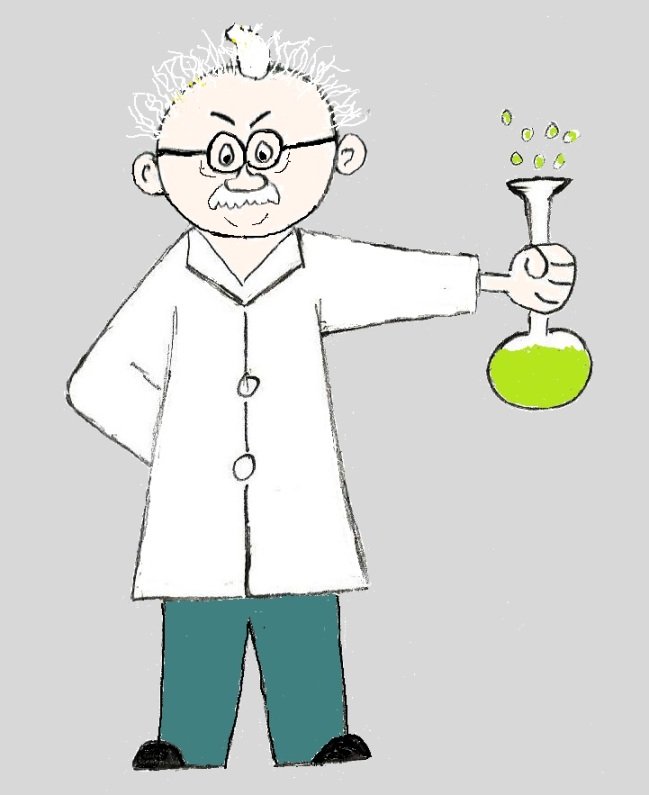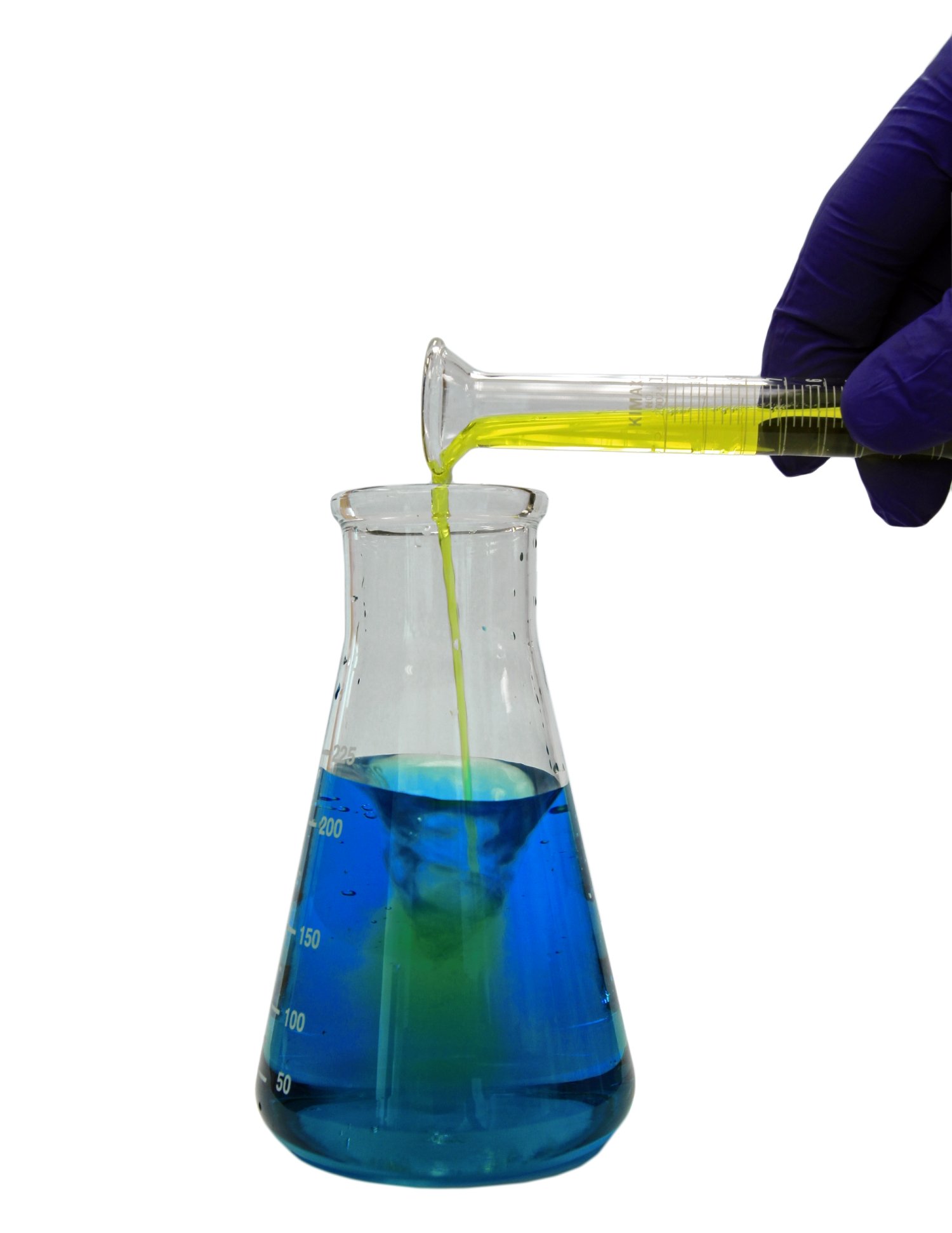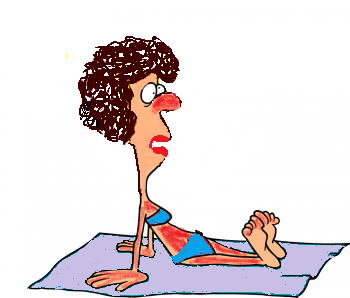- Home
- Toxic Chemicals in Household Products
- Is Fabric Softener Toxic
Why Fabric Softener is Unnecessary and Unhealthy
The answer to the question – Is fabric softener toxic? – is yes, yes, a thousand times yes. Besides coating your clothes with endocrine disruptors and allergens, there's all those secret chemicals that make your clothes smell good.
So, there are plenty of reasons not to use fabric softener. The good news is there’s an easy fix to the toxic chemical exposure you get from fabric softener. You don’t need it - so don’t use it.
I know, that’s not what all the commercials say. But, wearing “Naked Clothes” is an important and simple, less toxic living change. First though, you need to understand why you THINK fabric softener is necessary.
How'd We Get Here
People have been washing their clothes for as long as - well as long as there's been people. Yet it wasn't until the 1960's that fabric softeners became part of the laundry ritual. So, how'd we get here.
Take a trip with me in the Wayback Machine to 1960. Your mom (or grandmother) is trying out her brand-new clothes dryer. After a lifetime of hanging clothes to dry, her life will now be so much easier. She can hardly contain her excitement as she reaches in to pull out her newly dried clothes.
But wait.
Why are they so stiff and scratchy? And what’s that smell coming off her new polyester pant suit? (Heating polyester items is never a good idea).
In other words, drying clothes in dryers creates problems like scratchy, smelly clothes. Manufacturers then scrambled to solve these problems. And viola, the birth of fabric softeners.
First, to make fabrics feel soft after they'd been run through a clothes dryer, fabric softeners include chemicals to coat fabric (called quaternary ammonium compounds - quats).
Second, to make heated polyester smell better synthetic fragrances were added to mask the smell. Fragrance is also needed because the chemicals in fabric softeners smell so bad.
Fast forward to 2021 – It’s now ingrained in your brain that you need to use fabric softener to have soft, static-free clothes. And to have truly clean clothes they need to smell like an ocean breeze or a field of lavender.
Well, it’s time to retrain your brain. Because NOT using fabric softener is one of the easiest ways to reduce your daily toxic chemical exposure.
Is
Fabric Softener Toxic - Yes And Here Are the Reasons Why
Many of the chemicals in fabric softener are toxic. And you’re exposed to them while you’re doing laundry, while you store the washed items and when you use the items.
In other words, these toxic chemicals permeate your home’s air as gases that you breath in. And they are absorbed through your skin because of the chemical residue left on your clothes and linens.
There are 2 groups of chemicals that make softeners toxic. The chemicals used to coat the fabric and the chemicals that make up synthetic fragrance.
1. The chemicals used to make your fabrics soft.
Fabric softeners make fabrics feel soft by coating them with chemicals. The first fabric softeners used water, soap and oil to soften clothes. Now companies use lots of toxic chemicals to achieve softness.
These chemicals coating your clothes can be absorbed through your skin. Using products that contain skin absorbing enhancers, like lotion and hand sanitizers, can increase the amount that’s absorbed from clothing.
These chemicals can also be inhaled because they release gases (volatile organic compounds). These gases contribute to indoor air pollution and are known to cause asthma and allergic reactions.
Here is a list of some of the chemicals used to soften clothes and their health effects.
- Quaternary Ammonium Compounds – are known to cause asthma and allergies. Some are also endocrine disruptors and contribute to the formation of cancer-causing nitrosamines.
- Phthalates – endocrine disruptors, several types of phthalates are found in softening products.
- Diethanolamine (DEA) – interacts with other chemicals to create cancer-causing nitrosamines.
- 4-t-nonylphenol – endocrine disruptor that mimics estrogen.
2. The chemicals used to make your clothes smell good.
The specific chemicals used to make fragrance in different products is one of the great unknowns. They are not required to be listed on any labels because manufacturers claim they are proprietary. This makes it tough to judge the safety of any fragranced products.
It's also not any safer to choose fragrance-free products. A product that is listed as fragrance free usually contains masking fragrances to cover the chemical smell.
Here’s what we do know about fragrance:
- There are 3,000 chemicals that are used to make fragrance.
- A product that smells good may contain 50-300 different chemicals.
- Fragrance chemicals are a major source of indoor air pollution.
- Inhaling fragrance chemicals is linked to asthma and allergies.
- Some fragrance chemicals can react with ozone in the air to create dangerous secondary pollutants like formaldehyde.
- Many fragrance chemicals, like synthetic musk, are endocrine disrupters.
Worst Laundary Product Ever
One of the reasons I wanted to write on this topic was all the cringe-worthy commercials I’ve been seeing lately about laundry scent boosters.
What a terrible idea.
Hey, let’s fill tiny plastic spheres with fragrance chemicals that will coat your clothes and release synthetic smells for up to 6 weeks!
If after reading this article you still think this is a good idea, imagine sitting in an office with 10 people. Each one of you smells like a different scent boosting fragrance. Does that sound pleasant?
And now there are products that reduce wrinkles and protect your clothes from damage due to washing them. Because the ingredients in laundry products aren’t listed on the label, the chemicals needed to perform these services are unknown. So are their toxicity and health effects.
Thankfully, there is a very easy way to reduce your exposure to the chemicals that make fabric softener toxic. And it doesn’t involve joining a nudist colony. Although the solution will involve letting your clothes go naked.
Wearing Naked Clothes

According to advertisers, the only way your clothes and bedding will be clean, soft and smell fresh for 25 days is with fabric softener.
But fabric softeners and dryer sheets were developed for 2 reasons – clothes dryers make your clothes scratchy and stiff, and synthetic fabrics smell bad when heated.
The simplest solution - and the one that I use – is hanging your clothes to dry. Problem solved. And you know what? I never feel like I'm wearing burlap.
What makes clothes stiff when you hang them to dry is all the residues from fabric softener and laundry detergent. If you choose natural detergent products these residues will eventually wash out of your clothes.
So be patient. It will take several non toxic washes to remove all the residue. Adding a cup of vinegar to each wash cycle will speed the process.
Now I’m guessing for some of you who have to wash lots of clothes, this might not be an option. You NEED your dryer. The solution, try wool dryer balls. They soften your clothes, reduce static and shorten drying time. Plus, they last forever so they’ll save you money.
If you don’t like the way your synthetic fabrics smell after a run through the dryer hang them to dry.
If you really feel your clothes have to smell like something other than clothes, add a couple of drops of essential oil on your dryer balls. Or try a half of a cup of baking soda dissolved in your wash water or add one-half cup white vinegar to the final rinse cycle.
You can also steep vinegar for a couple of weeks with fresh herbs like rosemary and lavender to add scent.
Fabric softener is a useless product. With one or two simple changes you can reduce your exposure to several types of endocrine disruptors, allergens and chemicals linked to asthma.
Fabric softener is a useless product. With one or two simple changes you can reduce your exposure to several types of endocrine disruptors, allergens and chemicals linked to asthma.
Other Posts You May Like
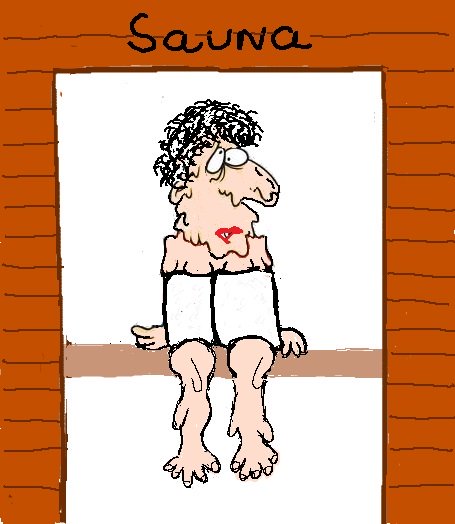 How To Detox Your Body Part II How To Detox Your Body Part II |

